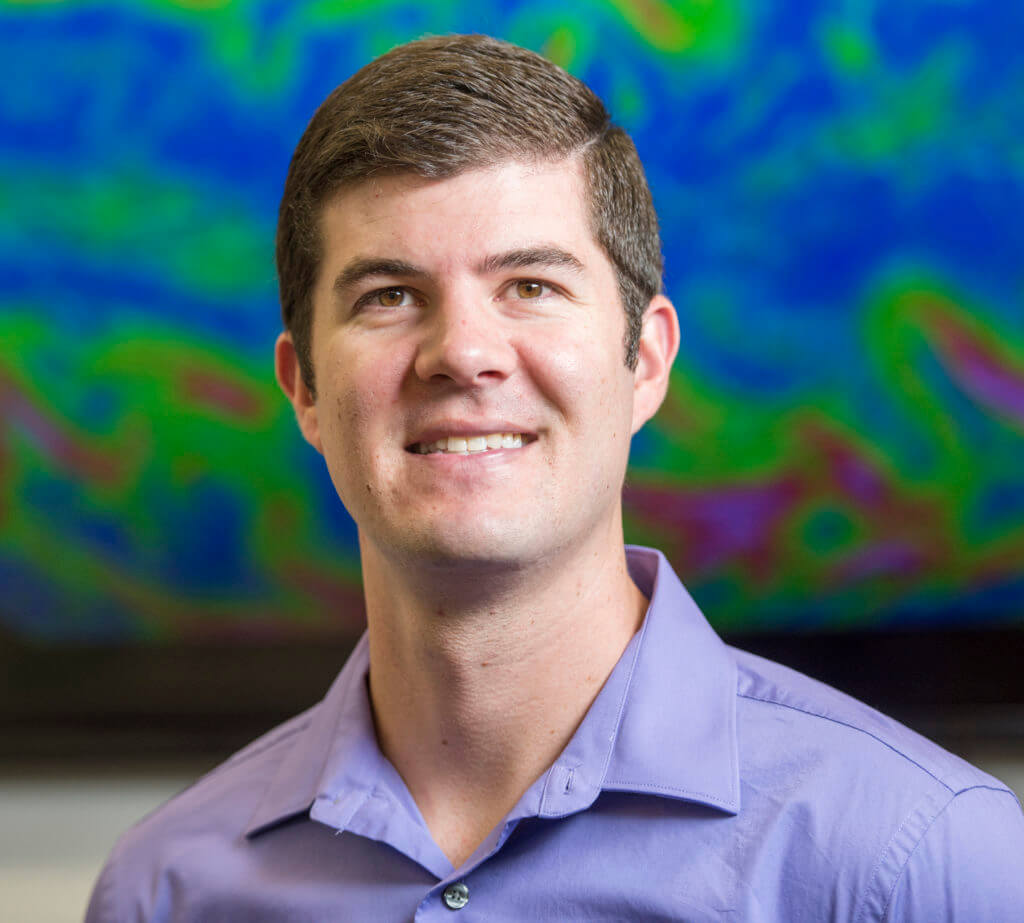DeKalb, Ill. — The National Science Foundation is awarding a $475,000 grant over three years to NIU Meteorology Professor Victor Gensini to extend his research into development of long-range forecasts for hail- and tornado-producing weather.
Gensini has been a pioneer in this “new frontier of forecasting.” It aims to identify atmospheric conditions that heighten the probability of severe U.S. weather events two weeks to two months before they occur. Tornadoes are life-threatening events, while hail is easily the most economically destructive hazard posed by severe thunderstorms, producing over $10 billion in U.S. losses each year.
“At the end of the day, we’re trying to push the envelope of what’s possible for severe weather predictions,” Gensini said.
“The atmosphere is extremely chaotic, so we’re looking for signal amongst vast amounts of noise,” he added. “In this chaotic system, it’s essentially a search for the most important factors that will help us identify if a severe weather season will be active or quiet. It’s a matter of shifting probabilities.”
The project will involve study of statistical associations between intra-seasonal atmospheric modes that can lead to severe weather and creation of conceptual models to explain the physical mechanisms. Artificial intelligence and machine learning will be used to help recognize these statistical relationships. Gensini, who was recently named deputy director of NIU’s Center for Research Computing and Data, said the center will be a key resource.
In 2018, Gensini led a study identifying a method for predicting the likelihood of damaging hailstorms in the United States—up to three weeks in advance. A year later, he and colleagues reported in the journal, Geophysical Research Letters, on an accurate long-range prediction of the nation’s extensive tornado outbreak in late May of 2019. The forecast for severe weather was made nearly four weeks before it began.
“This new NSF research was funded to increase our skill at extended-range predictions,” Gensini said. “We want to better understand the patterns that set up across the globe and that favor or mitigate severe weather frequency.”
Weather patterns that sparked the late May 2019 tornado outbreak in the U.S. began thousands of miles away with thunderstorms over the Maritime Continent. The forecast that predicted the outbreak looked for signals in two atmospheric indices—the Madden-Julian Oscillation, an eastward moving disturbance of winds, rain and pressure, and the Global Wind Oscillation, a collection of climate and weather information that measures atmospheric angular momentum, or the degree of waviness in the jet stream.
Recurring modes within both oscillations occasionally provide enhanced predictability of future potential for severe weather frequency—something Gensini refers to as “forecasts of opportunity.” Such opportunities do not always exist because often there is no recognizable pattern.
“We want to catalogue weather patterns that present these forecasts of opportunity,” Gensini said. “I’m also delighted because this grant will support students who will be dedicated to working on this problem.”
The grant provides funding for two graduate research assistants in atmospheric science or computer science who will be dedicated to the project over the next three years. A post-doctoral researcher and as many as five undergraduates will be involved as well.
Ultimately, Gensini hopes the team’s work will better inform severe-weather mitigation efforts by providing additional lead time to emergency response teams, insurance companies and other industry sectors. The work also has the potential to increase understanding of other types of extreme weather, such as flooding and drought.
Media Contact: Tom Parisi
About NIU
Northern Illinois University is a student-centered, nationally recognized public research university, with expertise that benefits its region and spans the globe in a wide variety of fields, including the sciences, humanities, arts, business, engineering, education, health and law. Through its main campus in DeKalb, Illinois, and education centers for students and working professionals in Chicago, Hoffman Estates, Naperville, Oregon and Rockford, NIU offers more than 100 areas of study while serving a diverse and international student body.



